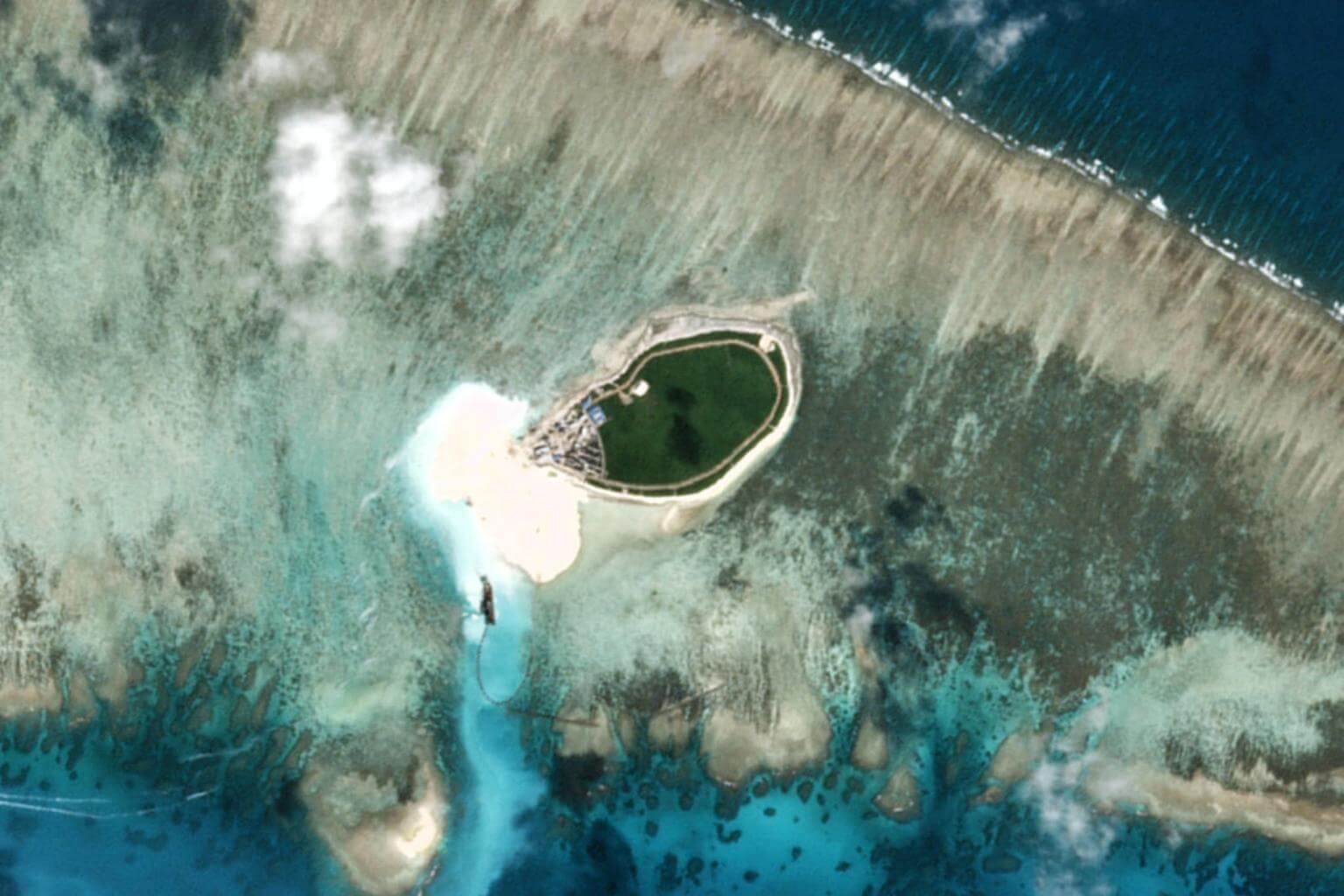Editorial Notes
A thaw in the South China Sea: The Nation
In its editorial on Nov 21, the paper says friendlier messages from the Philippines and Vietnam prompt the same from China, making it possible for a maritime code of conduct to be on the table.
Sign up now: Get ST's newsletters delivered to your inbox

The Chinese-controlled Tree Island, part of the Paracel Islands group in the South China Sea.
PHOTO: REUTERS
Follow topic:
BANGKOK (THE NATION/ASIA NEWS NETWORK) - Countries in the region have demonstrated understanding that belligerence and the flexing of military muscles cannot resolve festering territorial disputes in the South China Sea.
The only possible permanent solution lies in friendly discussions and diplomatic negotiations.
So it was encouraging when China and members of the Asean meeting in Manila this month agreed to begin earnest talks by early next year on a long-anticipated code of conduct (COC) for the contended sea, which Beijing has claimed almost in its entirety.
What's needed next if such a governing code is to become a workable reality are flexibility and a willingness to compromise.
The foreign ministers laid the groundwork for a COC in August, acknowledging that haggles over its wording would continue for a considerable length of time. Now, with Chinese and Asean leaders setting a timeframe for talks, we have taken a big step forward.
China has for decades been at loggerheads over territories in the South China Sea with Brunei, Malaysia, the Philippines and Vietnam - all Asean members and all with their own individual claims there.
Tensions rose alarmingly two years ago when China began bolstering its claims to sovereignty - building artificial islands and facilities usable for military purposes among the scattered reefs and shoals.
A hostile confrontation seemed to be looming in 2016 even as the Permanent Court of Arbitration at The Hague sided with the Philippines and rejected China's boast that it was the historical owner of disputed territory.
The ruling was not binding, however, and Philippines President Rodrigo Duterte has anyway chosen to work more closely with Beijing rather than challenge it.
Since 2002, the Asean-China Declaration on the Conduct of Parties in the South China Sea has been in place.
It's also non-binding and as yet still not fully ratified, but it serves to signify that agreement is possible between the antagonists. Occasionally flaring tensions aside, Asean and China have remained on friendly terms and appear keen to proceed with a code of conduct that promises to regulate maritime activities in the disputed zone.
We have seen enough failed talks by working groups, enough provocative action and rhetoric, and enough diplomatic ripples, even within Asean itself. Some of its members believe the bloc must speak firmly with one voice to curtail China's advances in the sea; others prefer the bilateral approach and seek independent resolutions.
When Duterte came to power in the middle of last year, the Philippines' mindset changed dramatically. It has ever since sought cooperation with China rather than conflict.
Next, attention turned to Vietnam, which has been a vociferous critic of Beijing's maritime territorial advances.
A softening of sensitivities was apparent last week when Chinese President Xi Jinping paid a state visit to Hanoi. Both he and Vietnamese party chief Nguyen Phu Trong vowed that their countries would use only peaceful means to settle the dispute.
Then Xi announced that Beijing wished to proceed with the COC, prompting the swift announcement from Manila of plans to kick-start negotiations.
Hammering out a code that is acceptable to all will be difficult, but calm, constructive determination will render the task easier.
If all the countries involved can work together on the basis of mutual trust and respect, it's probable we will soon see a viable, meaningful code of conduct - rather than a worthless piece of paper.
The Nation is a member of The Straits Times media partner Asia News Network, an alliance of 23 news media entities.

